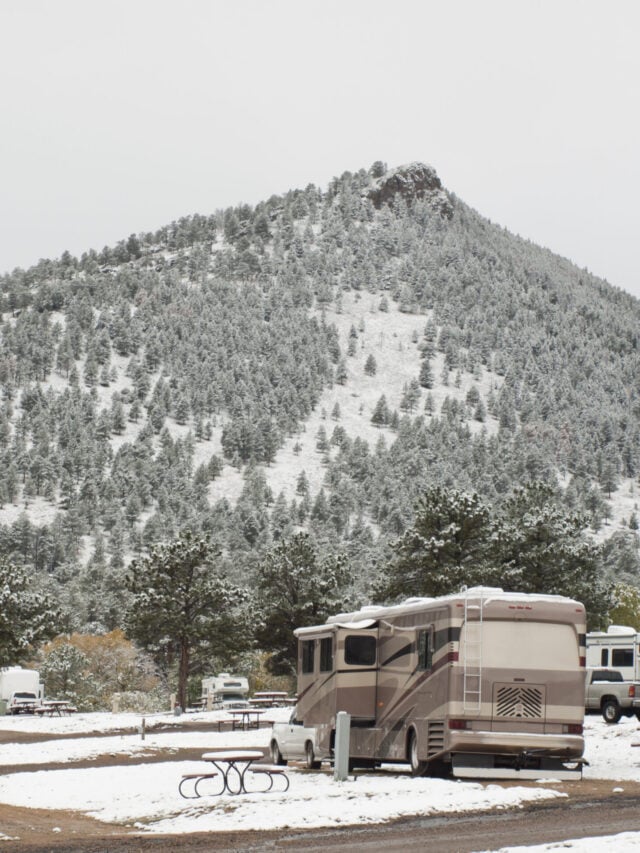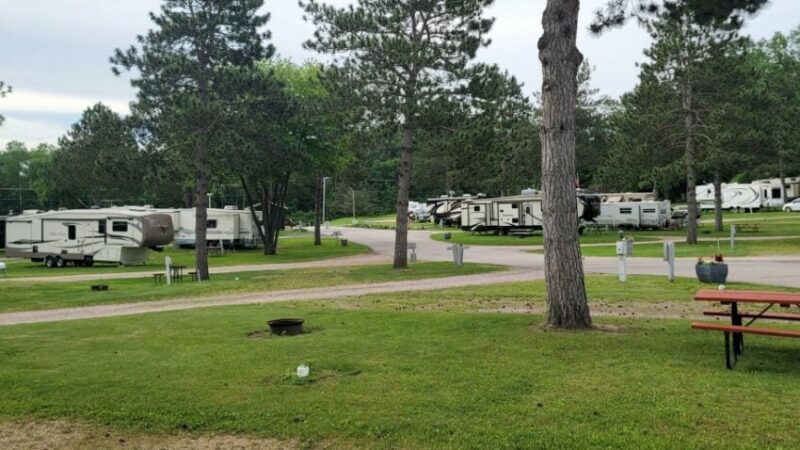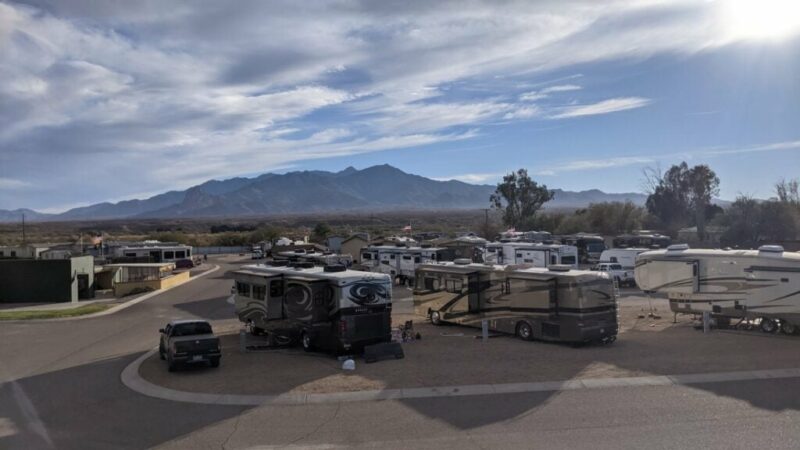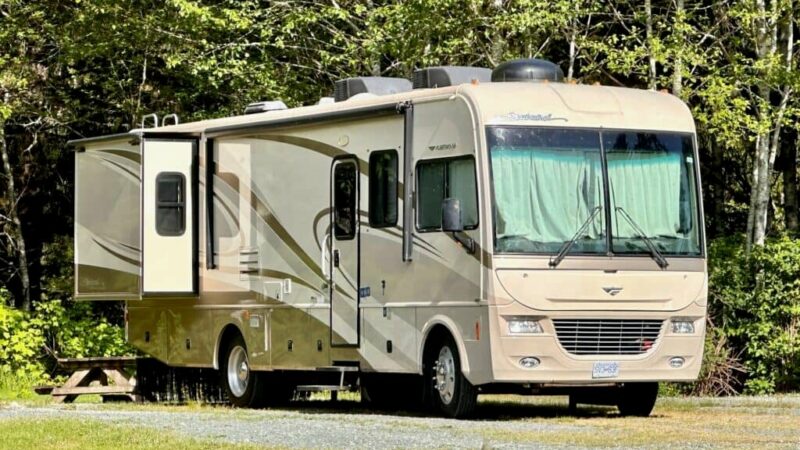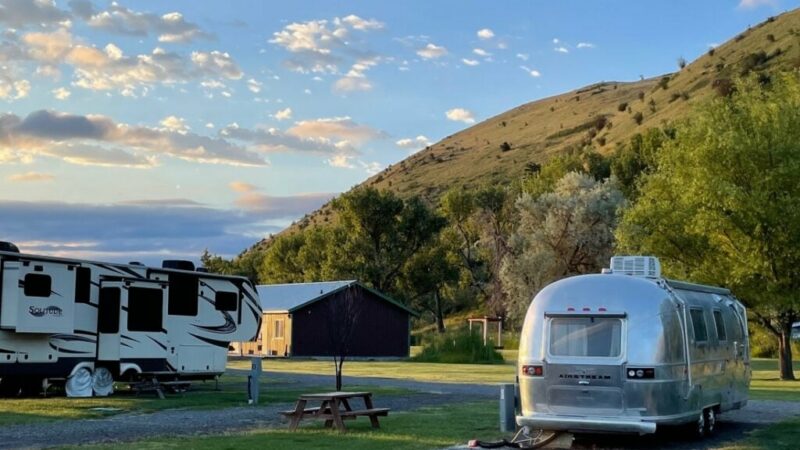How To Stay Warm Without Electricity In An RV
10 Ways To Stay Warm Without RV Electricity
Spending the winter in your camper can be fun, but you should always be prepared to endure cold weather.
Sure, RV walls offer protection from wind and snow. But drafts and poor insulation can make your vehicle quite chilly. You can run the heater, but unexpected power outages can force you to shut it down. Winter can be dangerous if you’re not properly prepared.
Don’t be a victim of a winter campground power outage. This article explains:
- How to upgrade your RV insulation,
- The best non-electric heat sources that work well in extreme temperatures,
- And the importance of dressing warmly and consuming warm food and drinks.
Keep reading to learn how you can stay warm, dry, and cozy while winter RVing.
1. Upgrade RV insulation
Poor RV insultation is one of the main problems with RVing during the winter. During warmer weather, it isn’t a huge problem if your RV has thin walls. But poor RV insulation can be dangerous during the colder months.
Anything you do to warm up your RV is pointless if you can’t trap heat inside. To upgrade your RV insulation, do the following:
- Seal up any gaps in your RV.
- Cover RV vents when you’re not using them.
- Inspect weather strips around your windows and doors. Replace if necessary.
- Create or buy insulated window covers. RVs lose a lot of heat through the glass, and an extra layer can help you seal the heat inside. DIY covers can be made of cardboard, styrofoam, folded blankets, or anything that blocks heat transfer.
- Don’t forget about your RV flooring. A few carpeted areas and rugs can help your feet stay warmer. Plus, they add to the coziness of your RV.
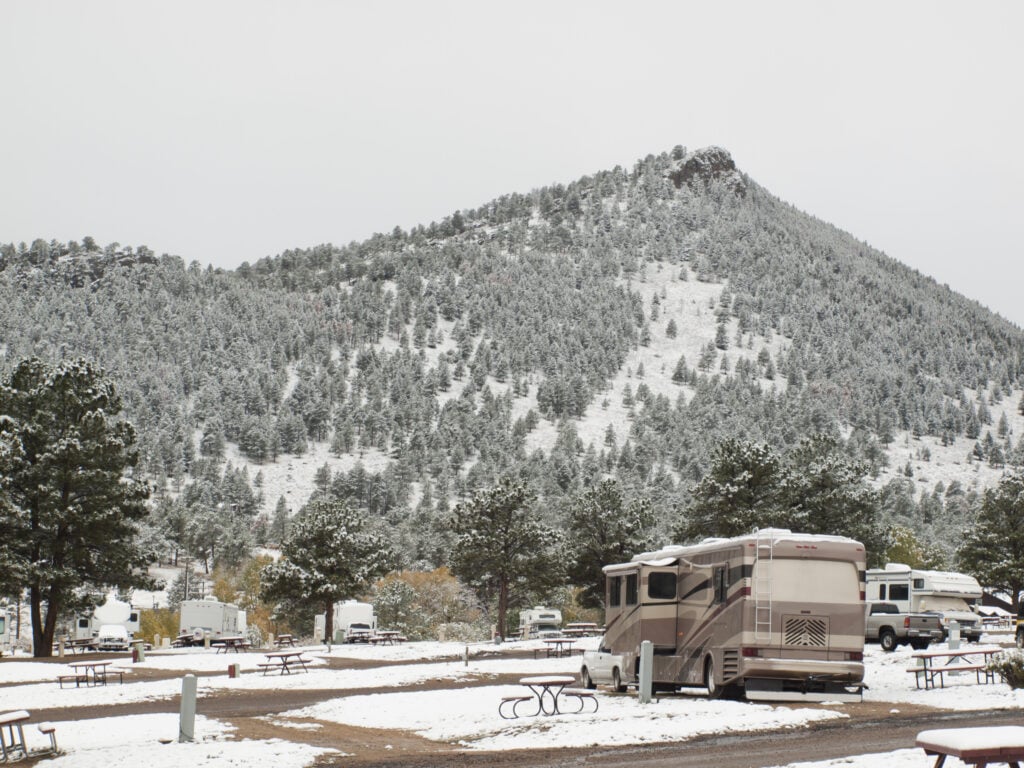
It’s vital to know how to stay warm without electricity in your RV. Photo: Shutterstock
2. Set up a small camping tent
It might sound strange to have a camping tent inside an RV. But these can actually be useful once the temperature starts dropping. That’s because the smaller an area is, the easier it is to keep it warm.
When you don’t want to heat up your entire RV, set up a small tent on top of your RV mattress. Camping tent fabric has some built-in insulation, so the interior temperature will be higher than the rest of the RV.
This can be a fun fort for kids or act as an easy way for couples to stay warm in the same bed. Either way, cozy up inside your tent and enjoy having a warm haven inside your RV. It’s also pretty easy to find small, cheap tents that are just the right size to cover a bed.
3. Cuddle up in a sleeping bag
You can always bundle up in blankets and bedding. But sometimes they just aren’t warm enough for cold weather RVing. Sleeping bags are the perfect solution to this problem. This camping gear is perfectly designed to keep heat in and cold out.
Even if you have a bed in the RV, try climbing into a sleeping bag before you nestle under the covers. The extra layers and insulated material make a huge difference at bedtime. You can always add more layers, but sleeping bags are a great way to stay warm without electricity.
4. Eat warm, filling meals
Winter-proofing your RV is one thing. But you also need to prepare your body for cold winter RVing. Have you ever noticed that you crave comfort food once the temperature starts dropping? This is your body’s way of telling you that it needs extra warmth and calories to stay healthy!
You can raise your body’s core temperature by eating warm foods and beverages. Don’t worry about counting calories while you’re living in an RV that’s chilly. Warm, hearty meals help you stay comfortable. Stock up on appropriate snacks and meal ingredients.
5. Change clothes before bed
Your clothing also makes a big difference as you try to stay warm without RV electricity. As you move around throughout the day, you will inevitably sweat a bit. This isn’t a big deal as long as you’re moving. But sweat can quickly lower your body temperature once you lay down for the night.
That’s why it’s always a good idea to change into a fresh, dry set of clothes before bed. Do it, even if you don’t feel like you’re sweaty. It might sound strange to get out of the warm clothes you’ve been wearing all day. But it’s better to give yourself a clean, warm set of clothing before bed.
6. Wear appropriate clothing layers
This winter RV camping tip probably isn’t a surprise. But you should layer your outfits when you’re living in an RV without electricity. Your clothes are your first line of defense against cold temperatures. Be thoughtful when you assemble camping outfits. Try putting on leggings underneath your pants. Maybe wear an undershirt, sweater, and jacket.
The layer that’s closest to your skin should be moisture-wicking. Polyester, wool, and nylon are excellent materials for a base layer. Next, add an insulating layer that traps air and warms it up. Fleece is a popular choice, but you can also use wool or down for this layer.
As long as you stay inside the RV, these two layers should be enough. If you go outside, you’ll also need a weatherproof cover on top of the layers. Choose apparel that’s warm and waterproof.
7. Keep your head warm
You can lose a lot of heat through your scalp. Hats keep your head and ears nice and toasty. Keep a beanie on hand for everyday use. You might want to sleep in that beanie because you don’t want to get chilly while you’re asleep. And if one hat isn’t enough, try adding two! A hoodie over a beanie is also a good combination.
8. Loosen your shoelaces
Speaking of dressing for winter RVing, you must pay attention to your footwear. Don’t be tempted to wear bulky socks and tight-fitting shoes as a way to bundle up your feet.
Unfortunately, this combination actually cuts off circulation to your feet, making them feel even colder as a result. Wear loose-fitting shoes and boots so you can promote a bit of airflow and reduce sweat. If your feet have some space to breathe, they can stay warm.
9. Invest in propane heaters
Electric space heaters are a great way to warm up your RV, but they won’t work if you have no power. Therefore, propane burners and heaters are good alternatives. These rely on gas and can produce excellent levels of heat. Just make sure you keep enough fuel on hand to keep them running!
The Mr. Heater F232000 Propane Radiant Heater is an excellent choice for winter RV camping. It’s small enough to be portable, and it can keep the entire RV nice and toasty. Check the area around it when you set it up to ensure there’s nothing flammable nearby.
10. Use hand warmers and hot water bottles
There are other ways to stay warm without RV electricity, besides portable space heaters. If you just need a small, personal heat source, try chemical hand warmers. These small packets can be tucked into your shoes, gloves, pocket, or anywhere else where you’re feeling chilly. Most last for several hours and they’re quite safe.
You can also heat up a water bottle. They might not stay warm forever, but the water remains at a comfortable temperature if you keep it close to your body.
Get tips from other RVers
If campground power goes out and you can’t rely on your traditional heaters, you must have alternative heat sources to prevent hypothermia or even death. Always know how to stay warm so you can stay alive.
One of the best parts about RVing is engaging with the community of traveling enthusiasts. iRV2 forums allow folks to chat with other RVers online and get other perspectives on everything RVing, including products, RV mods, and more.
Related articles:
- 8 Ways To Stay Warm While Camping In Cold Weather
- How To Heat An RV Without Propane
- 3 Ways To Keep Warm When RVing In Winter
The post How To Stay Warm Without Electricity In An RV appeared first on RV LIFE.

